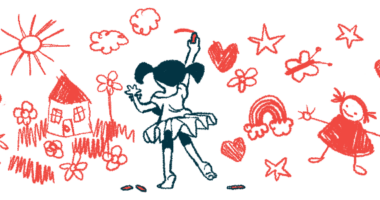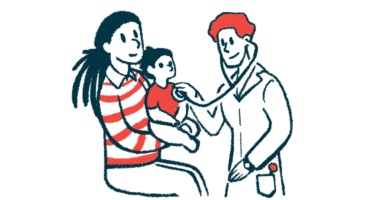Children are the unsung heroes of the rare disease world
Living with aHUS is hard enough as an adult; many who have it are under 18

Living with a rare and chronic illness is horrible. It can hinder your quality of life, make it difficult to work, and even affect your relationships with family and friends. Medical treatments, doctor appointments, invasive testing, and medications are a lot for anyone to deal with — but especially for a child.
In September 2020, I nearly died from atypical hemolytic uremic syndrome (aHUS), the rare disease that is the focus of this website. I spent almost two months in the intensive care unit and endured weeks of testing, multiorgan failure, dialysis, plasmapheresis, 18 blood transfusions, immunizations, antibody therapy infusions, strict dietary restrictions, isolation, and dozens of blood draws. It was a harrowing ordeal, but that seems to be common among those experiencing their first aHUS attack.
This period was traumatic and painful in many ways, so I sought out support groups online while I was in the hospital. I not only wanted to learn everything I could about the disease, but I also wanted to know what to expect. I found two groups on Facebook — one for adults living with aHUS and another for family members, caregivers, or parents of people with the condition. In that moment, I realized children also suffer from this disease.
My fears as a parent
According to aHUS News, about 42%-47% of aHUS cases are diagnosed before the age of 18, based on patient registries. And 36.3%-56% of those begin showing symptoms before age 2. I can’t imagine a child enduring what I did in 2020 or experiencing the fatigue, antibody therapy, bone and muscle pain, hypertension, and other complications I face today.
That’s something else I have to worry about for my own children. Even though I have a gene mutation associated with aHUS and my children’s father does not, there’s still a chance they inherited the mutation from me and could one day develop the disease. Every nosebleed, muscle ache, or headache my kids experience triggers paralyzing fear within me. I mentally freeze as if I’m holding my breath, waiting for the danger to pass.
But less than 20% of aHUS cases are familial, so I’ve chosen not to have my children tested for the mutation. I already stress and worry about them enough, and I wouldn’t want them to bear the burden of potentially testing positive.
Thankfully, because of my ordeal, we know which symptoms to look for in the event they become ill. And even though there’s a 50% chance they inherited the mutation from me, having that faulty gene wouldn’t guarantee they’d develop the disease. aHUS is very rare, affecting only about 20,000 people globally.
Children are far more resilient than we give them credit for. The children with aHUS I’ve seen and met are stronger and braver than I could ever be. If I’d been sick like this as a kid, I would’ve been an emotional mess.
Every day researchers are making strides to diagnose the disease faster and improve quality of life for all patients. Years ago, the prognosis for those with this disease was poor, but all of this progress helps ensure a future for children with aHUS.
Note: aHUS News is strictly a news and information website about the disease. It does not provide medical advice, diagnosis, or treatment. This content is not intended to be a substitute for professional medical advice, diagnosis, or treatment. Always seek the advice of your physician or other qualified health provider with any questions you may have regarding a medical condition. Never disregard professional medical advice or delay in seeking it because of something you have read on this website. The opinions expressed in this column are not those of aHUS News or its parent company, Bionews, and are intended to spark discussion about issues pertaining to aHUS.








Leave a comment
Fill in the required fields to post. Your email address will not be published.